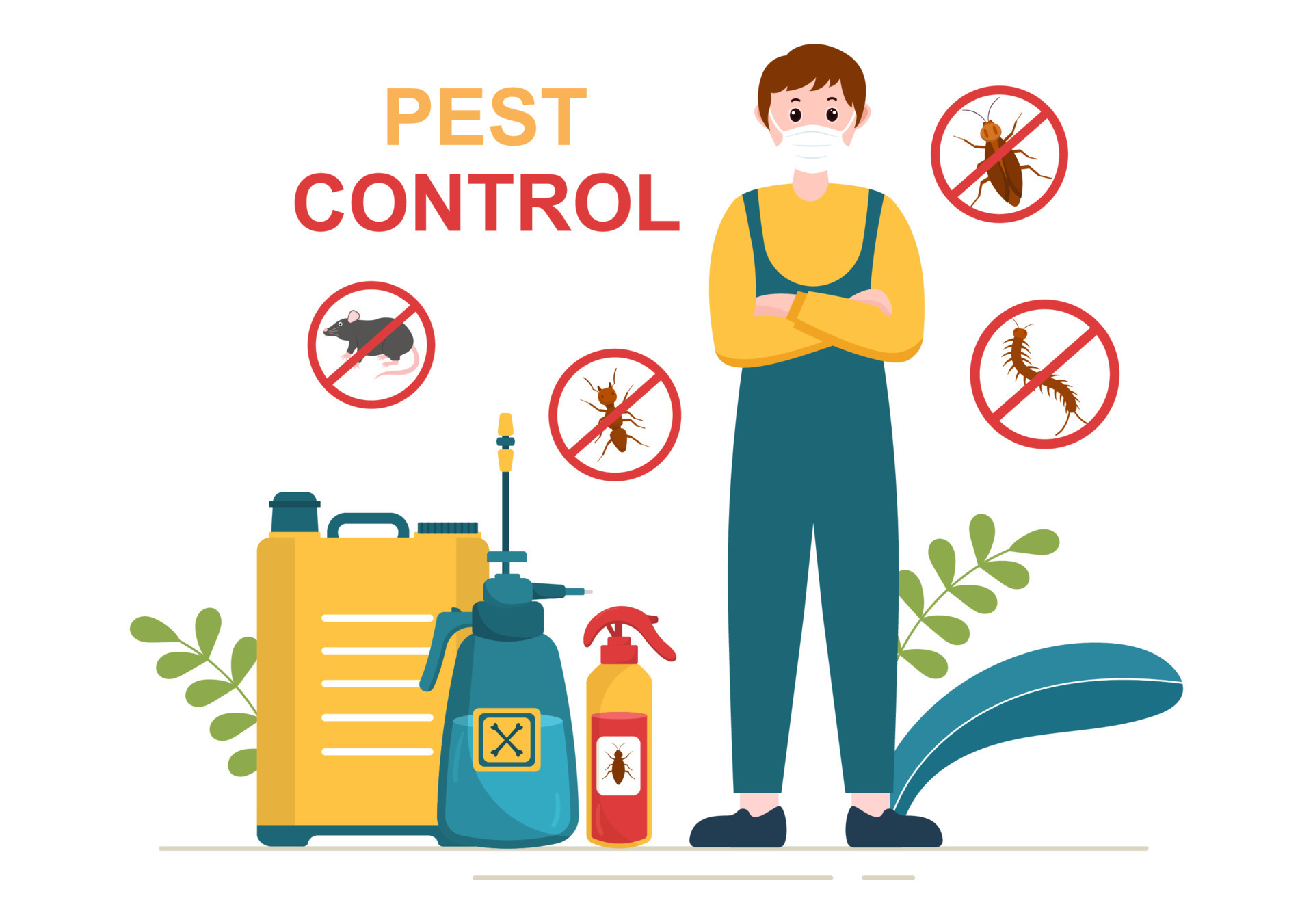Specialist Pest Control Auckland: Trusted Providers for Your Satisfaction
Wiki Article
Comprehending Various Sorts Of Parasite Control Techniques and Their Efficiency
The management of insects is an essential aspect of keeping the health and stability of various settings, from agricultural areas to household homes. When taking into consideration pest control methods, it is important to understand the diverse strategies offered and their differing levels of efficiency. From chemical interventions to organic solutions, each method offers unique benefits and constraints. By checking out the nuances of these insect control strategies, an extensive understanding of how to address insect issues can be developed.Chemical Pest Control Approaches
Chemical pest control approaches play an essential duty in properly handling and eliminating pest invasions in various atmospheres. One of the essential benefits of chemical bug control is its ability to supply fast and targeted remedies to pest issues. Pest Control Auckland.Nevertheless, it is necessary to consider the potential threats and drawbacks related to chemical parasite control techniques. Overreliance on chemicals can lead to the development of pesticide resistance in pests, making them more challenging to manage in the future. Additionally, the usage of certain chemicals can have unsafe impacts on non-target organisms, the setting, and human health and wellness if not applied properly.

Organic Insect Control Approaches
Making use of natural predators and microorganisms to manage parasite populaces successfully, organic parasite control methods offer a green and sustainable approach to pest monitoring. By presenting or promoting the activity of organisms that normally prey on or infect bugs, such as ladybugs for aphid control or particular bacteria for caterpillar invasions, organic control can aid maintain insect populaces at manageable levels without the requirement for artificial chemicals. This approach is particularly beneficial for natural farming techniques, as it avoids using potentially unsafe substances while maintaining plant health.
Physical Pest Control Approaches
While organic bug control methods concentrate on using all-natural killers and pathogens, physical bug control methods utilize physical and mechanical barriers to handle parasite populaces. These methods are frequently considered eco-friendly as they lessen using chemicals. Physical bug control consists of techniques such as capturing, utilizing obstacles like screens or webs, and literally removing bugs from the location.Catches are typically utilized in physical parasite control to capture and remove parasites like bugs and rodents. Another physical method is the usage of barriers such as screens, fences, or nets to prevent pests from getting in or infesting certain locations.
All-natural Bug Control Methods
Including plant-based repellents and natural killers is a vital approach in applying effective all-natural insect control Recommended Reading techniques. By urging the visibility of useful pests like ladybugs, lacewings, or predatory mites, garden enthusiasts can naturally manage pest populations. These killers feed on typical yard insects such as termites, caterpillars, and aphids, helping to keep a well balanced environment without the demand for chemical treatments.
In addition, carrying out cultural practices such as plant rotation, companion growing, and maintaining correct plant health and wellness can also improve the performance of natural parasite control approaches. These methods not just aid in avoiding parasite infestations yet additionally advertise more info here biodiversity and total ecosystem strength. By integrating these all-natural approaches, people can effectively handle pests while reducing ecological influence.
Integrated Pest Monitoring (IPM) Technique
Implementing an Integrated Insect Management (IPM) strategy is crucial for properly managing parasite populaces while reducing dependence on chemical pesticides. IPM is a lasting and detailed technique that combines numerous insect control techniques to attain lasting solutions. This method concentrates on prevention, control, and surveillance to address insect problems in an ecologically friendly way.IPM incorporates organic, social, physical, and mechanical techniques with the limited and tactical usage of chemicals when required. By emphasizing positive measures such as habitat modification, biological control, and exclusion, IPM aims to reduce pest populations and their impact on the environment. Routine tracking is important in IPM to analyze insect degrees precisely and figure out the most proper control methods.
Among the vital benefits of IPM is its capability to minimize the risks connected with too much chemical usage, such as ecological contamination and damage to non-target organisms. Additionally, IPM promotes an extra all natural method to pest monitoring by considering the total ecosystem dynamics. Generally, the IPM approach supplies a efficient and lasting solution for parasite control while advertising ecological duty.
Conclusion
Finally, understanding the different kinds of insect control approaches and their performance is important in successfully managing pest problems. Chemical, biological, physical, and natural insect control approaches each have their very own advantages and constraints. Integrated Bug Administration (IPM) strategy, which incorporates numerous approaches for sustainable pest control, is significantly being acknowledged as a ecologically friendly and alternative solution. By utilizing a mix of these organizations, individuals and methods can efficiently control bugs while decreasing damage to the environment.Chemical pest control approaches play an essential role in efficiently taking care of and getting rid of pest problems in different atmospheres.Using all-natural predators and pathogens to manage parasite populations properly, organic parasite control techniques supply a eco-friendly and sustainable strategy to pest management. By introducing or promoting the activity of organisms that normally prey on or infect parasites, such as ladybugs for aphid control or particular microorganisms for caterpillar problems, biological control can assist keep insect populations at convenient degrees without the requirement for synthetic chemicals.While biological parasite control approaches concentrate on utilizing natural killers and pathogens, physical bug control approaches utilize physical and mechanical barriers to handle pest populations. Integrated Pest Management (IPM) approach, which hop over to these guys combines different techniques for sustainable insect control, is progressively being recognized as a alternative and environmentally pleasant service.
Report this wiki page